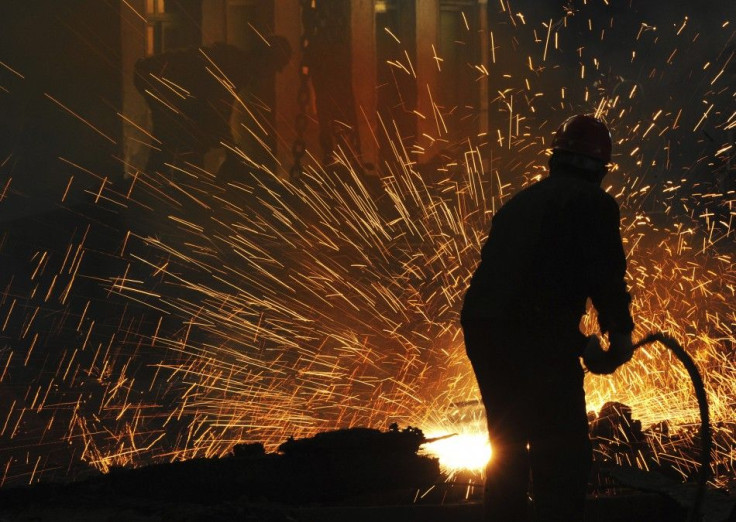Contraction Of Euro Zone Manufacturing Slows In May, According To Markit PMI, But Area's Factory Decline Is Now 22-Months Old, According To Purchasing Managers Index

TThe euro zone's shrinking manufacturing sector showed signs of life in May as the contraction in factory production eased more than it had in 15 months. It’s an improvement, but the continued contraction extends the downturn to 22 months.
A survey of purchasing managers in the 17-member monetary union by Markit Economics Ltd. put the group's index at 48.3, up from April's four-month low of 46.7. A reading below 50 means contraction, while a reading above that figure marks expansion.
The downturn eased in all euro zone countries. The member with the biggest improvement in May was Spain, which came in at 48.1, a 24-month high. The decline in Greek manufacturing slowed to 45.3, a 23-month high, and manufacturing in France was at 46.4, a 13-month high.
"Although the euro area manufacturing economy continued to contract in May, it is reassuring to see the rate of decline ease to such a marked extent," said Chris Williamson, Markit's chief economist. "The sector still seems some way off stabilizing, however, and therefore remains a drag on the economy."
The German purchasing managers index (PMI) signaled the slowest rate of contraction overall and moved close to the stabilization level as output and new orders both rose for the first time in three months. Downturns in the Netherlands and Austria were also only moderate.
Euro zone manufacturers continued to link weaker demand to the lackluster condition of domestic markets, as new export order inflows showed signs of stabilizing in May, Markit said. New export orders were broadly unchanged over the month, as new export business returned to Spain, the Netherlands and Austria, while the rate of decline in Germany eased to a negligible pace.
Analysts detected two clouds around the PMI's silver lining. The PMI surveys still suggest that the euro zone's gross domestic product is likely to fall 0.2 percent in the second quarter, extending the region’s recession into a seventh successive quarter. “The ongoing marked fall in employment and the steepest drop in factory gate prices for three and a half years also act as sobering reminders that the region faces the twin problems of unemployment rising to new record highs and underlying deflationary pressures," said Williamson.
Further, the area’s second-largest economy appears in particular trouble, having contracted at a steeper rate than Spain and Italy throughout the year so far,” he said.
© Copyright IBTimes 2024. All rights reserved.












